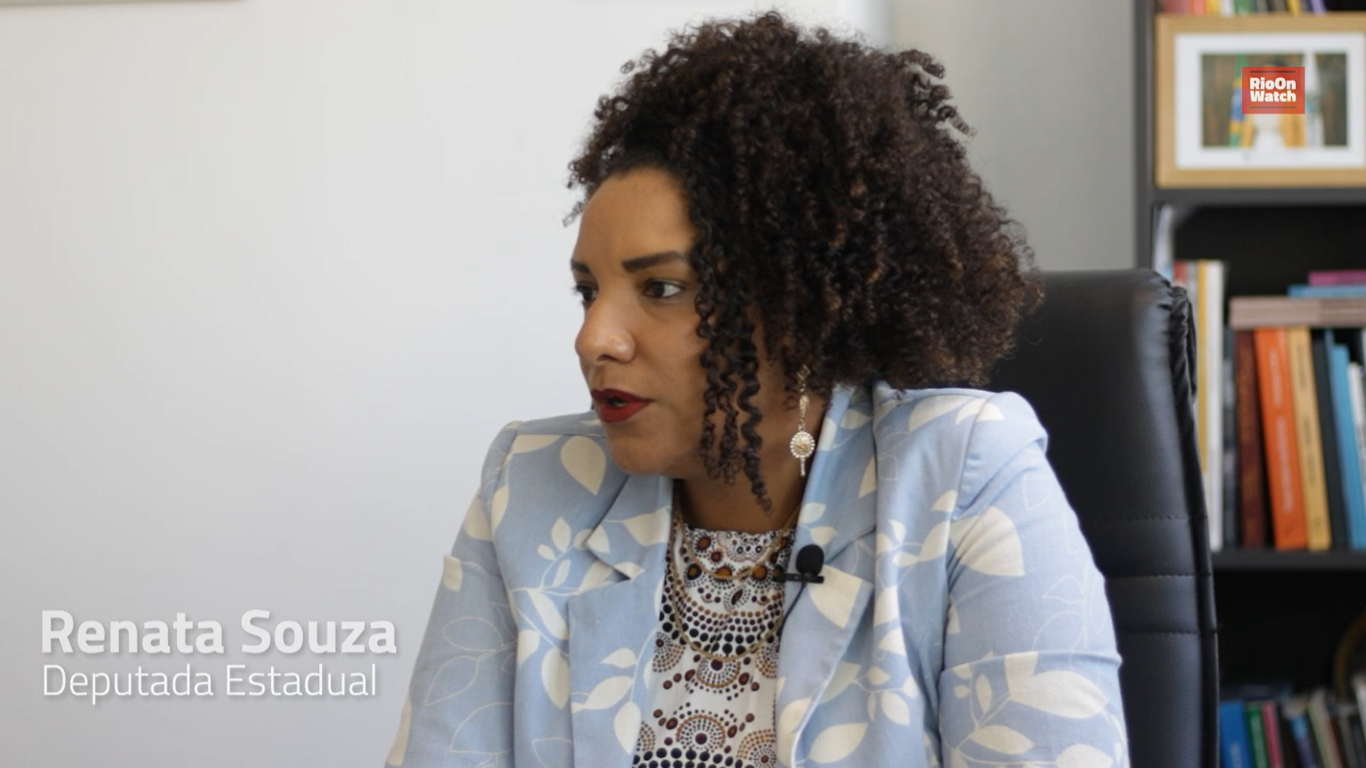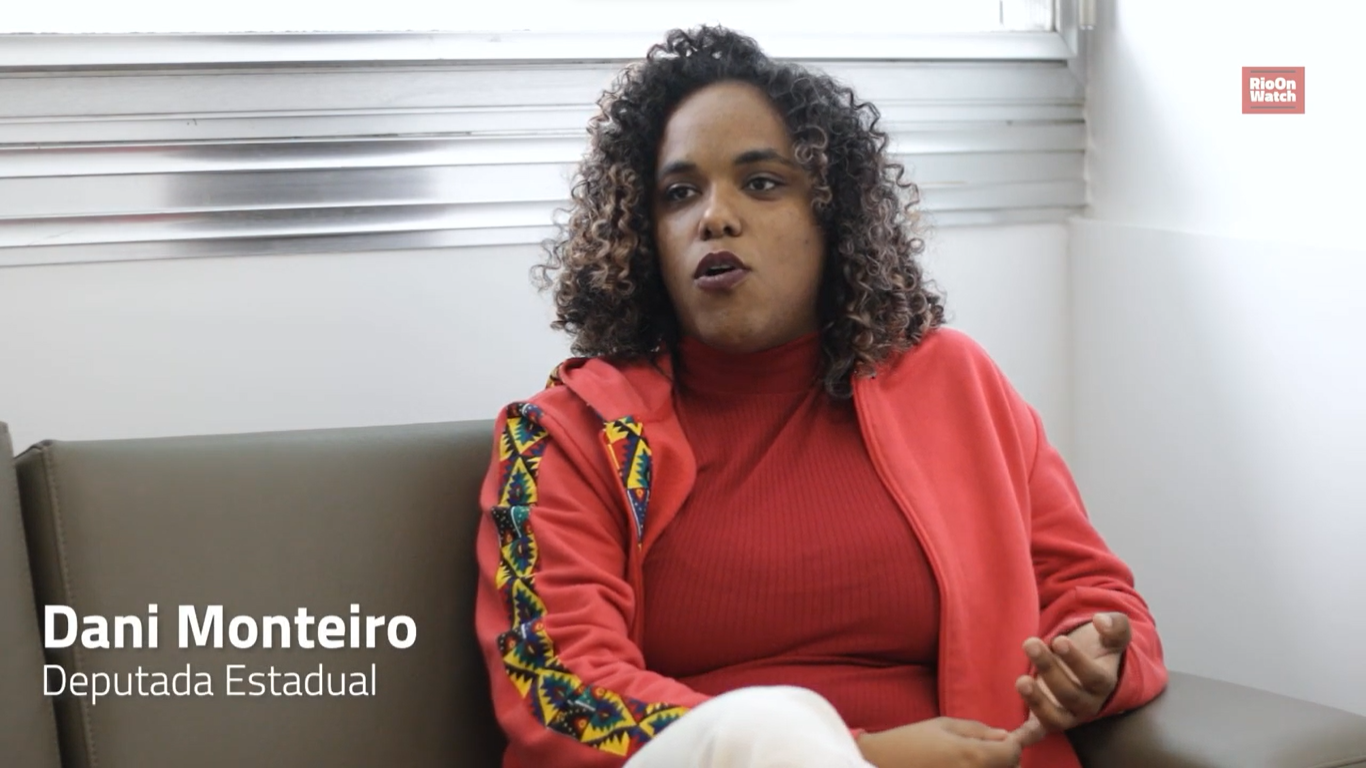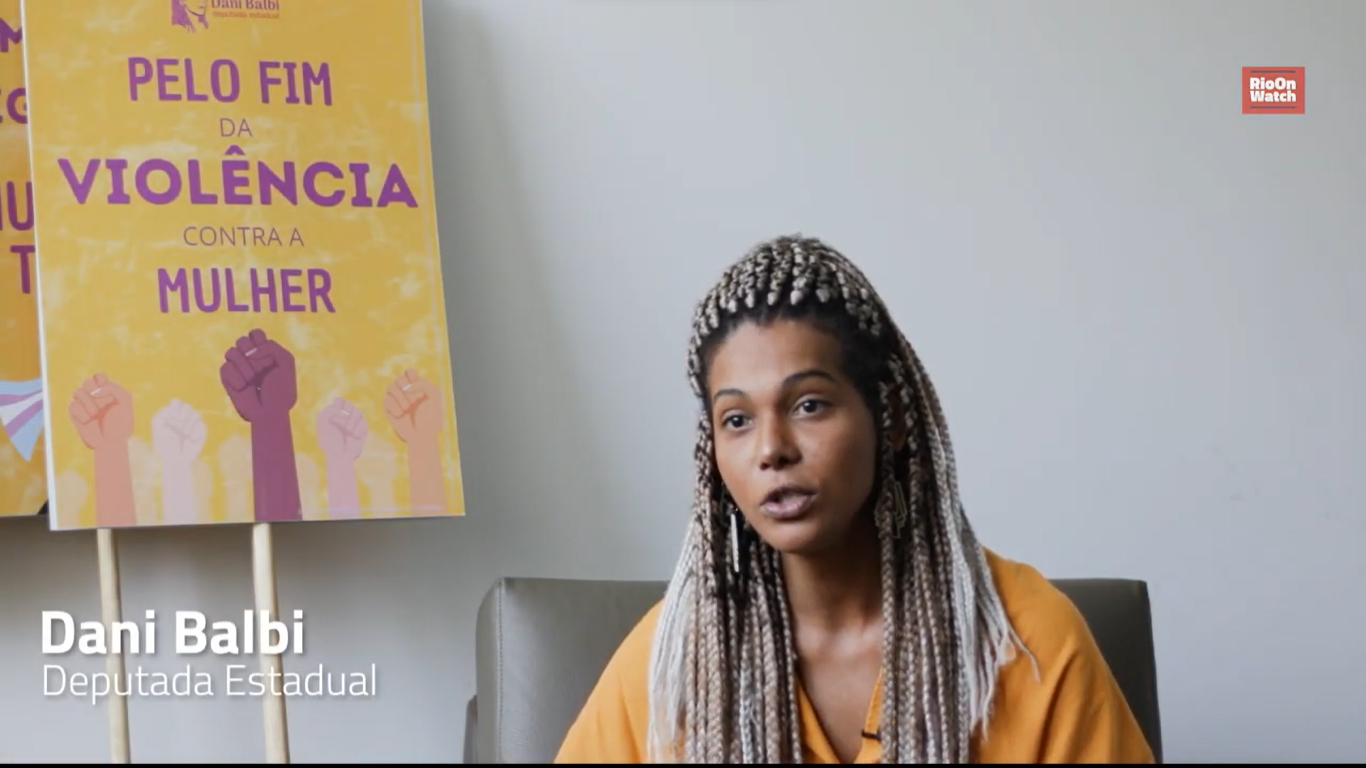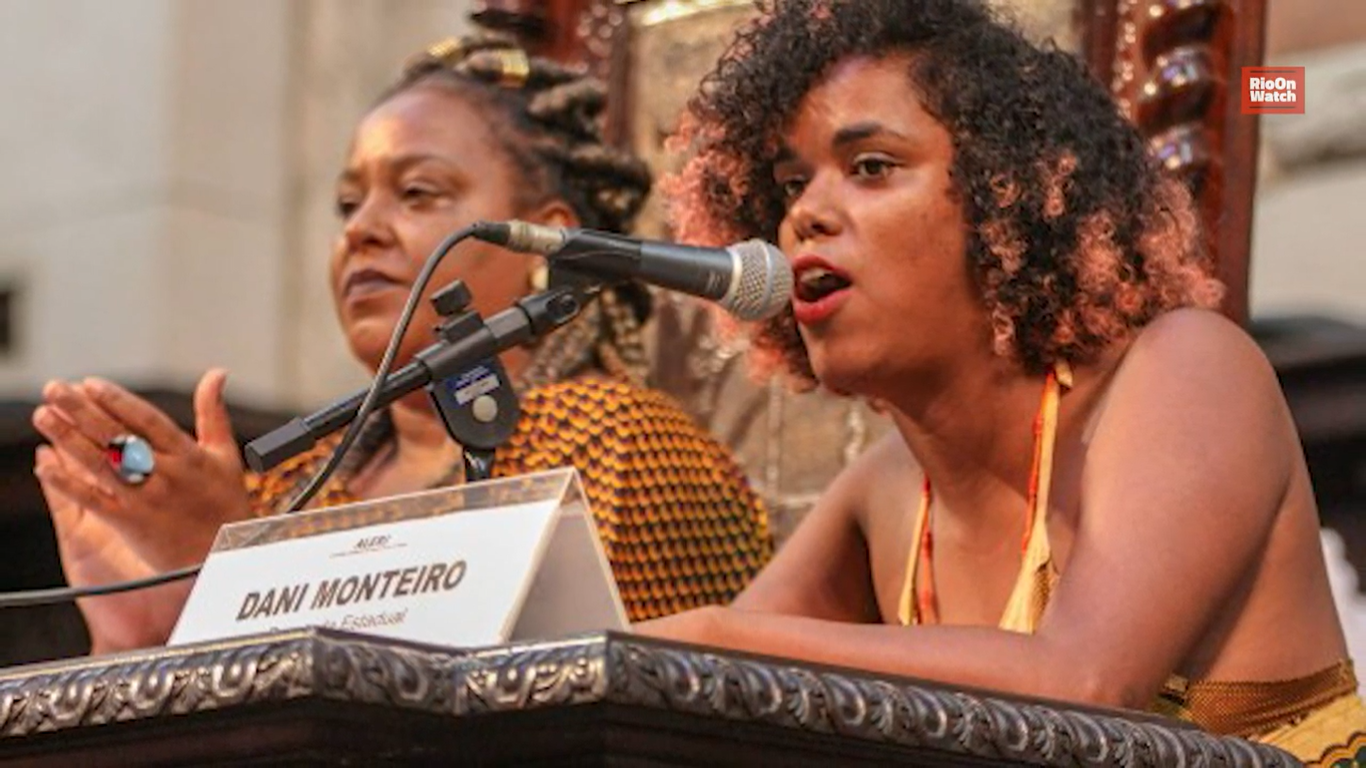Clique aqui para Português
November 20, 2023—On Brazilian Black Awareness Day, this mini-doc with English subtitles aims to be a historical document in which three Black women in leadership roles within the Rio de Janeiro State Legislative Assembly (ALERJ), reflect on race, class, gender, territory, and the legacy of Black women’s performance in Rio de Janeiro politics. They are state deputies Renata Souza (from Complexo da Maré), Dani Monteiro (from São Carlos), and the first transgender parliamentarian, Dani Balbi (from Engenho da Rainha).

Brazilian social structure is marked by profound inequalities that affect the populations represented by the three parliamentarians interviewed in this mini-doc. Among these social processes, which victimize and subjugate this part of society, are, above all, racism and sexism, which jointly instrumentalize oppression specifically towards Black women—who make up the largest population group of the country, 28% of the population. Furthermore, stigma regarding favela territories and cis-hetereronormativity are also present, which historically restrict opportunities and are remnants of Brazil’s colonial period. These characteristics of Rio de Janeiro’s social fabric often appear as obstacles to the exercise of full democracy, which should guarantee dignity for all. In a society with these characteristics, it becomes fundamental that the political arena work to grant republican and democratic values, above all, through representation and the protection of social rights.
“The Black woman’s political perspective is crucial, it makes all the difference. To observe how much Black women, who could be in spaces of power, have made a big difference in the creation of public policies… this directly impacts Brazilian democracy… This is an advance in our political struggle to overcome all remnnants of the enslavement of Black people… The first challenge is to understand that the favela is the city. In fact, it is what produces the city’s wealth, its territorial wealth.” — Renata Souza

In view of this, the objective of this mini-doc is to present a transversal perspective on the themes of race, class, gender, and territory, from the perspective of Black parliamentarians from favelas and peripheral areas. They were invited to reflect on the barriers that they encounter in the daily practice of politics in ALERJ. Furthermore, they ponder on what it is like to create public policies focused on these populations and their places of residence, such as favelas.
“This is the challenge of making public policy for the favela here in our state, as there is an extermination plan underway. The genocide of our population, which takes place both through its armed wing, with the direct extermination of Black boys and men. But there is [also] an entire chain of epistemicide, including [our] academic, non-participation, and social non-inclusion… Our non-participation exemplifies how, in our democracy, several voices are silenced, while others are amplified… This non-participation in decision-making, this marginalization of the Black population, especially of Black women, creates barriers. Democracy in Brazil has barriers that separates it from its own people… So, many times, several common, everyday problems for us are not seen.” — Dani Monteiro

Another point raised by the deputies is that their mandates end up becoming spaces for listening and welcoming those who are structurally marginalized and excluded by the broader society.
“Spaces of power are very hostile, especially for women—Black women, trans people, low-income… Power is created so that we feel removed… This demands from us, women legislators from the working class, with very evident social markers, a lot more firmness, and work. We need to scrutinize things more closely, understand the workings of the public sector, the functioning of this House [ALERJ], and the Executive Branch. We need to be involved in more inquiries, be out on the streets keeping up [with what is happening out there]. And due to the responsibility [of the office], we need to establish ourselves as a space to welcome many demands, since public authorities turn their backs on these demands, on these needs.” — Dani Balbi
In addition to the importance of these activities, they also make evident that they have public policy proposals for various sectors, which would benefit society as a whole. Black women in politics offer solutions to problems relating to social order, politics, and economy—crises that the state of Rio has faced for decades. As Dani Monteiro points out, for centuries, Black women have offered remedies that have boosted Brazil’s development.
“Considering that we actively contribute to the organization of work in our society, with collective care, whether it be family or community… I would like to celebrate the history of our ancestors! If today we have a state of Rio de Janeiro, if we have a dynamic structure that is strong today, the contribution of Black women is enormous! Whether it be for the dynamics of production in Brazil during the colonial slave-holding period, part of our food culture, our healthcare, comes from our healers, our cooks, but also from the point of view of contribution, of the social role that we fulfill. It is clear how much Black women have actively contributed to the creation of Rio de Janeiro.” — Dani Monteiro
Therefore, there is no one better than Black women to think, based on a democratic State project, about solutions that overcome difficult and adverse situations, such as the economic, social, and political crises faced by Rio de Janeiro. After all, the Black woman is the motor of Rio de Janeiros’ economy, the largest group within the state’s population and who, in general, builds individual and collective survival strategies in the midst of crises. Therefore, it is quite likely that the solution of historical problems perpetrated and perpetuated by male, white, and cis-heteronormative governments and parliaments will come from the parliamentary and social action of Black women.
Watch the Mini-doc with English Subtitles Here.

About the author: Felipe Bellido holds a doctorate in Political Science worked as a researcher at PUC-Rio and visiting researcher at University of Illinois at Urbana-Champaign. He is a volunteer at Educafro, Fellow of the Instituto Identidades do Brasil and a member of the ForbesBLK community. He is currently an analyst for DE&I (Diversity, Equity and Inclusion).
About the producer and editor: Janine Miranda lives in Nova Iguaçu and is a language teacher who works with video and photography. She is also an environmental educator with the NGO Contato.
Article translated by Vasti Cruz, video translated by Kay Alvito.
